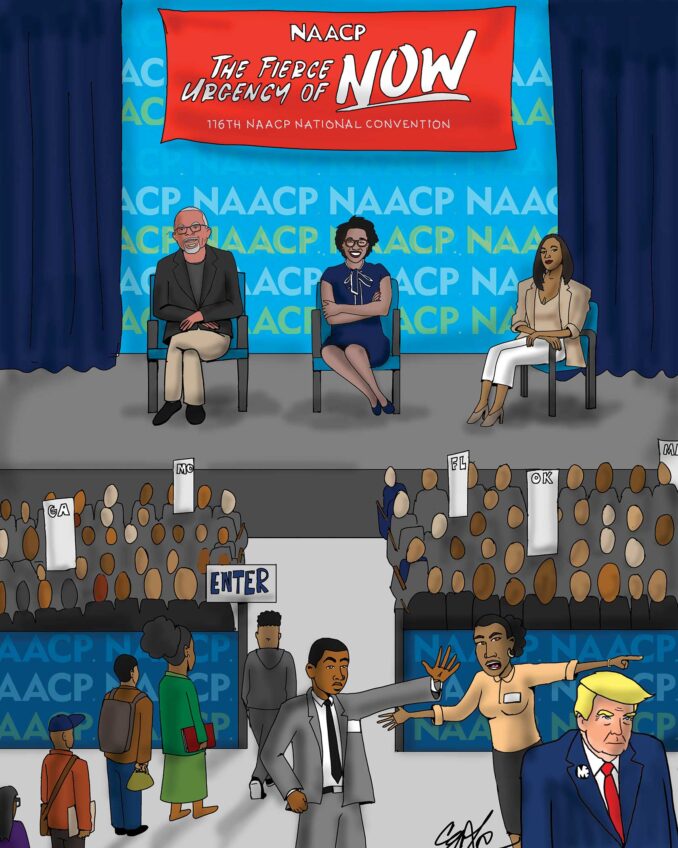
A blueprint for success
The inadequate quality of public education in many cities has become a national problem, but several Boston charter schools have found the solution. Results on the Massachusetts Comprehensive Assessment System (MCAS) provide the acid test for determining progress.
Students in the 7th and 8th grades at the Edward W. Brooke Charter School scored #1 in the state in both English and Math. All of the 7th graders scored either proficient or advanced in both subjects while 100 percent of 8th graders matched the MCAS score in English and 96 percent scored proficient or advanced in Math. It is important to note that 98 percent of the students are minorities and 71 percent qualify for free or reduced price lunch.
Match School students have also been perennial MCAS stars. Match’s 10th graders tied for first place in the state in English with 100 percent scoring proficient or advanced. For the third consecutive year, all Match 10th graders scored 90 percent or higher in the proficient or advanced level for all three MCAS tests (Math, English and Science).
Roxbury Prep, Boston Collegiate Charter School, Academy of the Pacific Rim and Excel Academy are other charter schools that produce extraordinary MCAS results. A common attribute of all charter schools is open enrollment. There are no admissions examinations. Parents apply and admission is by lottery.
The charter schools that have achieved great academic success have developed pedagogic techniques that could benefit Boston Public Schools. The logical step would be for the public schools to adopt those academic strategies.
Many parents now believe that the problem is archaic restrictions in the Boston Teachers Union contract. Seniority protects unproductive teachers and contract provisions prevent teachers from spending extra time with students who need help. Parents are now organizing to assure that the new teachers’ union contract primarily serves the needs of the students.
Some charter schools have developed a template for academic success. The strategy now is for citizens to develop the will to assure that the remedial changes become embedded in the new Boston Teachers Union contract.
An emerging crisis
A high rate of unemployment is a continuing problem, but it is even more severe for those over 50. According to the Labor Department, about half of the 2.2 million unemployed who are 55 or older have been unemployed for six months or longer.
There is a sinking feeling among some unemployed older Americans that they may never have a job again. Sustained unemployment has severe personal consequences, and the consequences shall create another social crisis. According to the recent Census data, the poverty rate for those 55 to 64 increased to 9.4 percent in 2009, up from 8.6 percent in 2007. The rate is now more likely to be even higher.
Many workers had plans to work beyond the normal retirement age to provide for health care and a reasonable level of comfort in an extended period of old age. However, long term unemployment has forced them to sell assets and reduce their standard of living. Many may be forced to take early social security at age 62 rather than wait until 66. This will result in a 25 percent lower check every month.
Retraining is especially important for the elderly unemployed so that with fast changing technology, they do not become unemployable.






